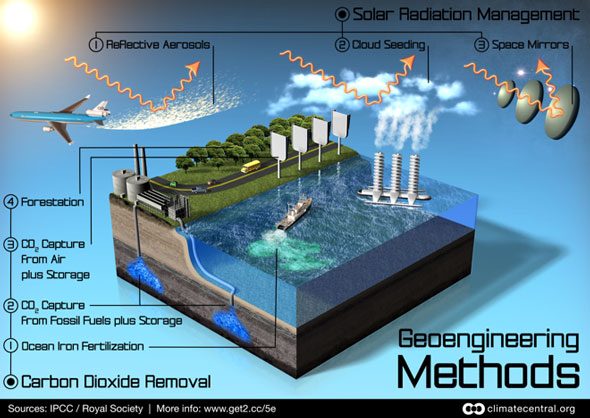-
Michael D. Lemonick, Climate Central
Geoengineering Faces Dilemma: Experiment or Not?
September 18, 2012 By Wilson Center Staff
The original version of this article, by Michael D. Lemonick, appeared on Climate Central.
In May, a team of British scientists abruptly canceled an experiment they had been planning for nearly two years. The Stratospheric Particle Experiment for Climate Engineering, or SPICE, was intended to test ways of injecting tiny particles of sulfur dioxide into the upper atmosphere, with the eventual goal of filtering out sunlight to cool the Earth in the face of global warming. The main reason given for the cancellation was a potential patent dispute over some of the technology involved.But a second reason, according to the project’s lead investigator, Matthew Watson, of the University of Bristol, was the fact that there’s no international agreement on whether, and under what circumstances, such experiments should happen. That being the case, he told Nature, it would be “somewhat premature” to go forward.
In fact, the entire field of geoengineering – a set of technologies that is aimed to try and combat rising temperatures by artificially cooling the planet, among other things – is highly controversial. That applies especially strongly to so-called solar radiation management, or SRM, the sun-shielding technique most scientists, including the SPICE team, have been talking about. (It’s also known as the Pinatubo Option: When Mt. Pinatubo erupted in 1991, it spewed particles of natural sulfur dioxide that lowered global temperatures slightly for months.)
One argument against geoengineering is that it does nothing to address the greenhouse-gas emissions that cause warming in the first place, and that the existence of such a backup plan would suck the energy out of efforts to control those emissions. Another is the law of unintended consequences, which dictates that the best-intentioned ideas can sometimes backfire.
Continue reading on Climate Central.
Sources: The Guardian, Nature.
Photo Credit: Climate Central.
 A Publication of the Stimson Center.
A Publication of the Stimson Center.



